I did a really lazy thing the other day. While talking to my brother about whether Thor: Ragnarok has any female characters my 5-year-old niece might like I casually referred to Tessa Thompson's Valkyrie as Thor's "love interest."
She's not.
She's so much more than that.
It's easy to miss that or assume otherwise. Throughout superhero movie history, the default setting has been hero: love interest.
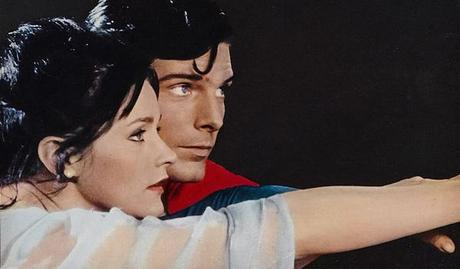
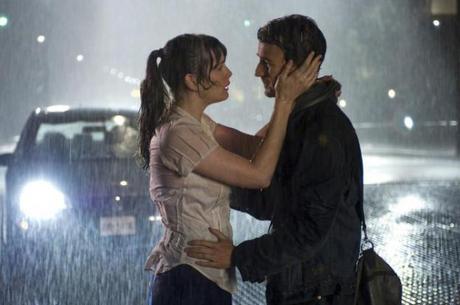
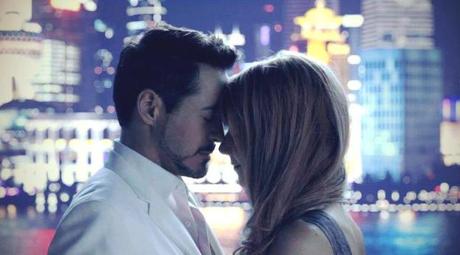
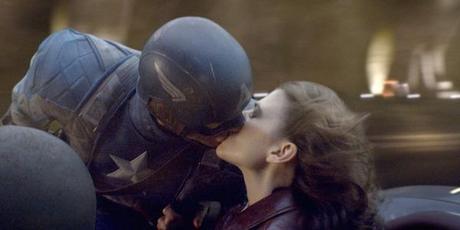
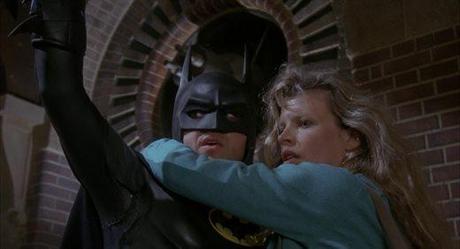
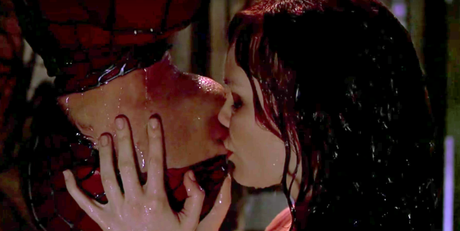
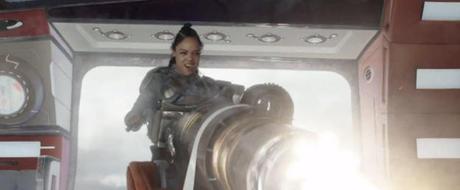
It's part of a longstanding tradition of Hollywood trying to simultaneously give the boys what they want (i.e., action and shit blowing up) and the girls what they want (i.e, romance and all the feels), to say nothing of those boys who might like romance and those girls who might love action scenes.
THE WAY THOR USED TO DO ITSo, naturally, Thor: Valkyrie, right? After all, she does tell him not to die during the final battle. If that isn't love I don't know what i....wait, that's all there is between them, romantically?
Yep. By the end, she probably has a more intimate relationship with that giant gun (and its suggestive imagery) than with Thor. She adds "you know what I mean" to the end of her "don't die" proclamation, but if there is to be another Thor movie (he could die in Infinity War, after all) they aren't locked into taking Valkyrie in a romantic direction. Heck, her own bisexuality is still hanging in the air. What if she and Sif hit it off next time?
Contrast this with the first two Thor movies, aka How to Lose a Thunder God in 10 Days But Then Get Him Back Again. Jane and Thor have a classic meet cute in the first movie: she hits him with her car. Twice.
Ok. Maybe not so much "classic" as "potentially litigious," if Thor even knew the meaning of the word, but it starts them on a whimsical note which characterizes much of their relationship.
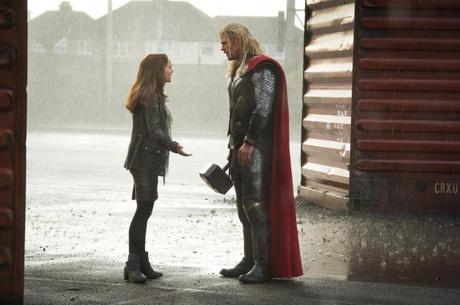
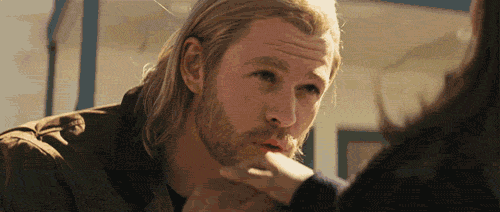 Seemingly half of Jane's Thor screen time is devoted to staring up at this dreamboat of an impossible man who claims to have literally fallen from the sky and into her life. After they are inevitably ripped apart, the film ends not on any kind of Avengers set-up or hint of a future villain; instead, the final shot is of a determined Jane getting all sciency to figure out how to get her man back.
Seemingly half of Jane's Thor screen time is devoted to staring up at this dreamboat of an impossible man who claims to have literally fallen from the sky and into her life. After they are inevitably ripped apart, the film ends not on any kind of Avengers set-up or hint of a future villain; instead, the final shot is of a determined Jane getting all sciency to figure out how to get her man back.
This is a woman who will later win a Nobel Peace Prize for her scientific research (albeit off-screen via brief reference in Age of Ultron), and ends Thor on the verge of a professional breakthrough. But we are explicitly told by Heimdall, "She searches for you," as explanation of Jane's final actions in the film. A romantic reunion awaits them, we're promised. It just doesn't go according to plan.
The somewhat unjustly reviled Dark World, the sequel which Ragnarok openly mocks, is the story of two lonely people struggling to cope with their abrupt breakup. Dark Elves, aether, Malekith? Mere window dressing to the film's larger story about our literally star-crossed lovers.
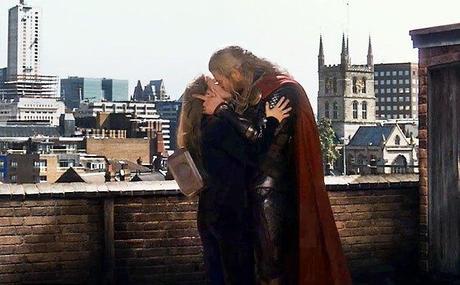
Odin tells Thor to move on. Sif also tells him to move on, strongly suggesting he should move on with her (since the couple eventually marry in the comics). On Earth, Jane can't even get through a complete date without referencing Thor. Darcy makes it seem as if Jane has done nothing in-between movies but pine over her lost man after her initial efforts to re-open the portal back to Asgard apparently went down in flames. Worse yet, he popped back into town for The Avengers and didn't even call or stop by to say hello.
THE WAY GUARDIANS DOES ITFate eventually brings them back together. She's possessed by one of the universe's most powerful objects, as you do, and spends a good chunk of the film as the literal MacGuffin. She meets Thor's parents. It doesn't go well. Yada, yada, yada, in the end Thor abdicates the Asgardian throne for her, fulfilling a two-film journey of a man learning to take a different path than he expected, to choose love over power.
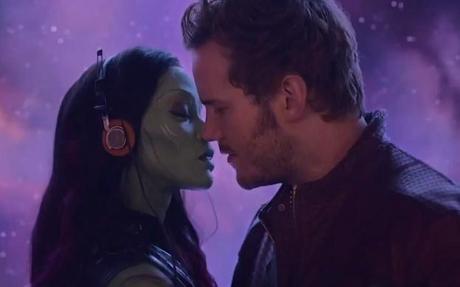
It all hews closely to how we've been telling superhero stories on film for years. All of Marvel's Phase 1 movies, in fact, fall perfectly in line with this tradition, as does Ant-Man, which was always meant to be Phase 1 film until its behind the scenes drama. The Marvel Cinematic Universe was built around shippable romantic couples.
Marvel Studios, however, now seems determined to de-emphasize romance as part of a larger effort to find news way to tell superhero stories. It's partially a survival mechanism to stave off audience burnout, partially a natural evolution of what is essentially one giant TV show posing as a series of movies, partially about staying chaste so as to still play to 18-34-year-old males without running afoul of the censors in China, and partially a filmmaker AND audience-driven response to the new age of gender and racial wokeness.
Consider James Gunn's explanation for why Peter Quill and Gamora haven't kissed yet despite having been in two Guardians of the Galaxy movies AND despite sharing slow dances in both of them:
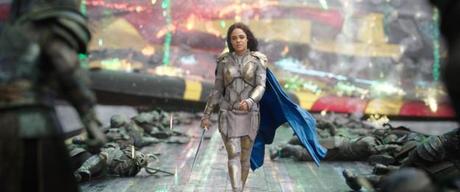
THE WAY SPIDER-MAN IS TRYING TO DO ITWe have the moment between Gamora and Peter Quill. Some people have asked, 'Why not have that result in a kiss?' The truth is because that's not who Gamora is. She is not someone who is going to just give in to the moment of a lustful, passionate moment. That's just not who she is. But what she did do: She loves Peter Quill. That's very obvious at the end movie. And she admits that to him and their love is based on something much deeper than sex. It's based on a profound friendship between the two of them. They are the heads of this family in a lot of ways.
Those are the words of a man who is divorced, yet rather publicly still close friends with his ex, Jenna Fischer, meaning he might be coming to this from a place of well-earned understanding and maturity. Romantic love without friendship doesn't last and is overvalued in pop culture, he could be saying.
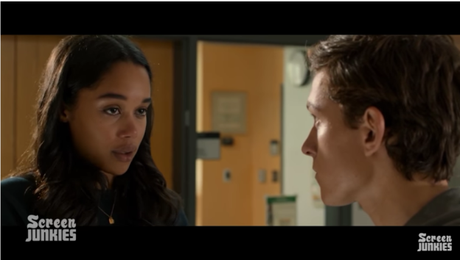
Thus, after two films Gamora merely acknowledges her "unspoken thing" with Peter, not unlike Valkyrie's "you know what I mean" to Thor. By not slotting Gamora or Valkyrie into traditional love interest roles their films allow them to have lives of their own. Gamora may have complicated feelings about Peter to work through, but she's also got a sister to make amends with, a tragic past to process and a Baby Groot to look after. Valkyrie needs a push from Thor to return to Asgard, but she does so because she has her own sense of duty to that place independent of him as well as a score to settle with Hela, the woman who killed all of her sisters in arms.
This new approach doesn't always work out so smoothly. Peter Parker's would-be girlfriend, Liz Allen, in Spider-Men: Homecoming ends the movie with her life completely in shambles because of him, yet the last time we see her she tells him, "Whatever's going on with you, I hope you figure it out." Granted, she doesn't know he's Spider-Man and thus responsible for her father being in prison, but this parting line is in keeping with the extreme patience she grants him throughout.
That's because Liz Allen isn't really a character in Homecoming nor is she someone we'll likely ever see again. She's merely the object of a high school boy's crush, made more interesting by virtue of her race (technically, the MCU's first black love interest since Gamora, though played by a woman of Dominican and Puerto Rican ancestry, is a green-skinned alien) and status as not a cheerleader but instead head of the academic decathlon team. Plus, oh yeah, her dad's the villain Peter's been hunting the entire time.
Similar to James Gunn with Guardians, what they are really doing is playing the long game, choosing to build a friendship before a romance. Thus, what will undoubtedly be the more consequential relationship in the franchise is between Peter and his sardonic friend Michelle (Zendaya), except Kevin Feige is now so averse to repeating the same old type of romances we've already seen before he's since gone out of his way to clarify the following:
HOW THE AVENGERS AND CAPTAIN AMERICA ARE TRYING TO JUGGLE ITShe's not Mary Jane Watson. She never was Mary Jane Watson. She was always this new high school character, Michelle, who we know there's an "M" in Michelle and an "M" in Mary. We never even looked at it as a big reveal necessarily, but more of just a fun homage to his past adventures and his past love. We thought, 'Wouldn't it be neat if her initials were MJ?' And then I think it leaked that she would be playing MJ and then it became a whole headache for Zendaya to have to navigate.
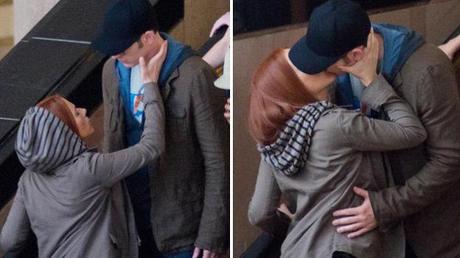
Headache indeed. Countless people still don't know she's not actually playing a race-switched Mary Jane. But by divorcing themselves from the Mary Jane mythos they are breaking from the past and forging a new path where their Peter Parker doesn't have to be defined by his romantic entanglements nor do the women in his life. Even Peter's courtship of Liz in Homecoming is a far more subdued, less all-encompassing affair than Tobey Maguire and Andrew Garfield's more classically inclined romances.
Captain America is unique among the Phase 1 heroes in that his story includes a 70-year time jump from origin to sequel and thus necessitated giving him a new supporting cast. Peggy was so popular she got her own TV series, but she couldn't follow him to his movies, apart from a heart-breaking death bed scene in Winter Soldier and funeral in Civil War. So, Cap teamed up with Black Widow, whose moral fluidity contrasts nicely with his idealism. The directors thought of the pair as being work wife/work husband. So, even though they kiss in Winter Soldier it's entirely unromantic, a spy move utilized to hide in plain sight. She even teases him about his lack of game afterward.
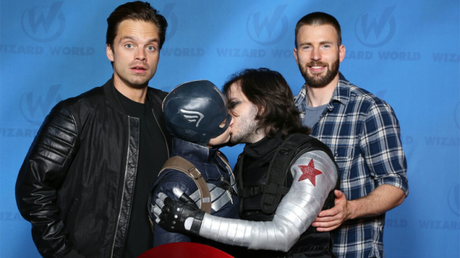
Instead, Black Widow has been paired with Bruce Banner, a relationship hinted at in The Avengers and fully developed, albeit controversially, in Age of Ultron. Cap kinda, sorta has a thing with Peggy's niece Sharon in Civil War (because, ewwww), their relationship played more as "maybe when the world's not ending we can finally get together for a cup of coffee."
Elsewhere, Age of Ultron characters like The Scarlet Witch and Vision are still just friends, bonded by their experiences and similar histories, but separated by Civil War. Doctor Strange has some vaguely defined thing with an ex. Hawkeye has a wife and kids at home. Tony's been on-again, off-again with Pepper ever since Iron Man 3. And the central shippable couple of the MCU became Steve Rogers and Bucky Barnes, a story side-effect spurred on by a clearly underserved audience.
And moments like this:
The result is a Marvel Cinematic Universe that is currently more devoid of overt sex or romance that at any other time in its history. Moments where characters might have kissed in the past just because of convention are now being second guessed and reexamined. For example, if Ant-Man came out today would Peyton Reed still have had Scott and Hope kiss at the end? Either way, the new Jane Fosters introduced into the MCU today get to be more than just the hero's love interest. Usually. Jury's still out on Rachel McAdams in Doctor Strange. Sometimes, like Valkyrie, they get to be so badass they even scare the hero and tame the beast (or Hulk, in this case).
There is a downside, though. As IndieWire argued, "If the movies of the MCU share a common theme, it's that of the balance between power and personal responsibility. When it comes to violence, Hollywood knows what to do. When it comes to sex, Hollywood clearly has no idea how to reconcile the two. Marvel circumvents that problem by avoiding it altogether. Their superheroes are so monastically depleted of desire, so impermeably self-possessed, that it often feels like they're still sealed inside their packaging."
They used to get to kiss once in a while. Now, not even that.
Wonder Woman wasn't afraid to go there, not just to a place of actually allowing its hero to (probably) have sex but also to a movie-wide embrace of romanticism. The MCU's been there, done that though. Now that this universe has no end in sight there's no rush to put couples together or lean so hard on the old Richard Donner/Tim Burton/Sam Raimi rules of superhero storytelling. These aren't movies; they're TV episodes, and relationships on TV have to build over multiple episodes. So, that's what Marvel is doing, and in the process they taught my niece, who did end up seeing Ragnarok, a woman can wield a sword just as good as any man and be more than a mere "love interest."
Afterward, she told me she liked Valkyrie and Hela, but who does she want to be?
Thor, of course.
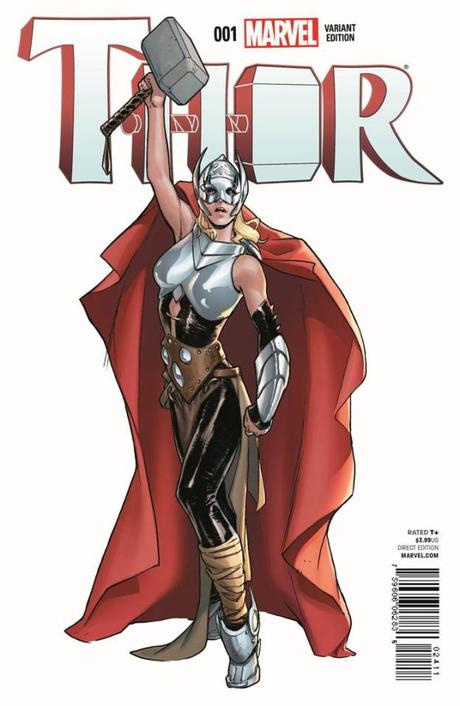
If only there was a female Thor in the comics.
Oh, wait. That's right.
What do you think of Marvel's new approach? Do you miss the unabashed romance of the older movies? Dig the newer "let it build over multiple movies" slow burn? Like them both equally for different reasons? Or feel like romance has never been the MCU's strongpoint regardless of Phase? Let me know in the comments.

